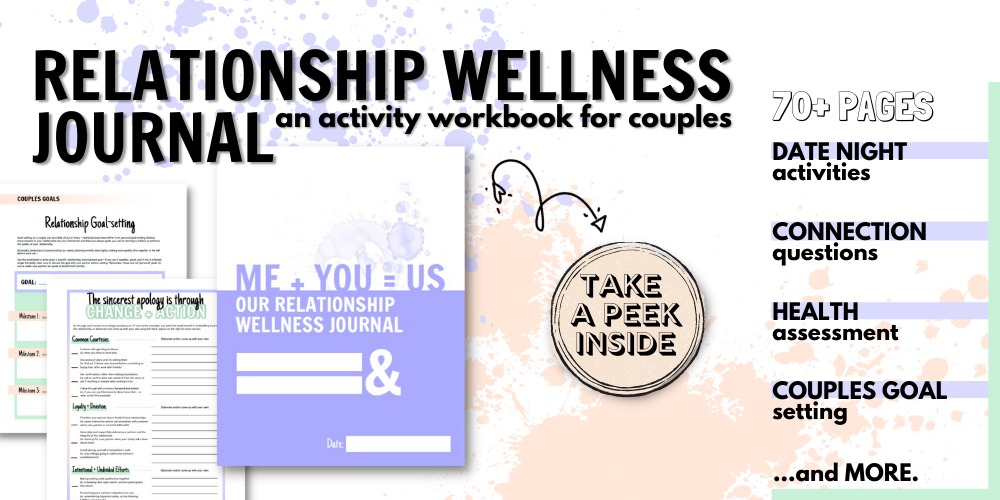Did you know you form an attachment style early in childhood? In fact, there are multiple forms of attachment (healthy and unhealthy), but that’s not where I’m going with this post. And while attachment and Love are fairly interconnected (especially in relationships today), they are actually distinctly different and often confused.
THAT’S what I want to surface – what unhealthy attachment looks and feels like in relationships.

Love vs. Attachment in relationships – what you need to know
Attachment is selfish
But I also don’t believe Love is selfless, either. Oop.
Because if you’ve tuned in to one of my earlier posts on romanticized red flags, then you would know that self-sacrifice or selflessness (in terms of relationships) is actually geared as being more self-centered and self-serving (*cough* which is selfish *cough*). In this case, most will self-sacrifice – give [up] a part or parts of themselves – in relationships as a way to ensure safety and security, to receive validation of self-worth and a return in value. That’s not to say self-sacrifice is automatically deemed unhealthy and selfishly forbidden in every and all aspects of relationships. For example, you may be less likely to keep score, you pick your “battles” more easily, and engage in acts of service that aren’t transactional (meaning, you accept that give and take is not always equal).
Self-sacrifice, IMO, is actually natural, mainly because we are so blatantly unaware – er, in denial – of the core motive. As human beings we want to be seen as good, because in Love that is the divine way, right? Moreover, I think we refuse to wrap our minds around the fact that this coined term “selflessness” we were taught “Love is” is simply guaranteed resentment.
BUT, attachment is indeed selfish. It has motive, intention, and an obvious [callous] agenda. Attachment is the revolving door – that always starts from and leads back to you. This can look like being heavily dependent on your partner for your happiness and fulfilling your needs, and deeming them responsible (as if they are the parent and you are the child). Your decision-making (or lack thereof) can have manipulative, controlling, and codependent tendencies as a way to get your partner to do and become what you want by way of self-neglect and self-abandonment.
Attachment is disingenuous
There may have come a time in your life where you needed to be more or less of something or become someone in order to get something or a specific result. You may do whatever is necessary to be accepted by others (like family or friends), win the approval of someone (by gaining their affection and attention), or simply to fill that empty void in your life. This often happens when disappointment – to yourself or in others – causes you to veer off from being your authentic self.
In attachment, you are likely hiding or over-shadowing parts of your true self you may not like, feel ashamed of, or see as unacceptable. When this happens, other deceptive and self-neglecting behaviors are likely to follow. For example, you may look over certain red flags in others because that would mean having to acknowledge your own. And when you are not only being dishonest with yourself, but with your partner about who you are, you’re less likely to take accountability for your part in the relationship.
Attachment is manipulative and controlling
It is the opposite of liberating and free. Okay, not that “do whatever the f*ck I want without regard for no-body” energy, but the kind that is self-empowering. Love makes you feel like you have the world in your hand, yet you treat it differently. You value what you have, not more of what you could have.
Attachment focuses entirely on getting what you need, want, and don’t have from others. Your partner now becomes “the world” in your hand, who you believe you can mold and fix to your ideal liking. Even you may shape and mold yourself into who you need to be to get what you want. Some common examples of controlling and manipulating behaviors in attachment are:
- Discouraging or preventing your partner from having or being around their family/friends.
- Testing your partner and the relationship.
- Engaging in tactics where your partner must read your mind.
- Blatantly and deliberately withholding affection and love as a form of punishment.
- Love-bombing: excessive/unhealthy level of attention and affection on pleasing your partner.
Attachment is restricting and taxing
In terms of personal and relationship growth, attachment inhibits expansion and alignment. Instead of both partners striving to be the best versions of themselves for themselves and each other, attachment focuses on the other. When you focus more on what your partner is doing, not doing, saying, not saying, being, or not being, you end up neglecting and endangering yourself in the process. Which, believe it or not, also affects your partner.
Think of it as driving on the wrong side of the road, against oncoming traffic. You might even say that attachment forces you to stay stuck in the same place, resulting in a disarray of your standards, expectations, and priorities, making it incredibly difficult for Love to grow in a healthy way.
Attachment is enmeshed
For those who don’t know, enmeshment by definition is the description of a relationship between individuals in which personal boundaries (and even autonomy) are unclear and penetrable. Let’s just say enmeshment is a very common problem today, and is largely being introduced as early as childhood, in family relationships, and can then be passed from one generation/relationship to the next.
Some examples of enmeshment (in relationships) are:
- Blurred emotions between individuals – i.e., when your partner is angry (whether or not at or relating to you), you become angry.
- Having differences (thoughts, beliefs, etc.) usually lead to negative outcomes; i.e., it’s better/safer/easier to just agree with your partner or vice versa.
- Your role as a partner is your sole and only purpose.
- You heavily rely on your partner for your emotional state of being – your self-esteem and happiness is dependent on your partner or is your partner’s responsibility.
- Boundaries are either loose, non-existent, and often/ repeatedly violated; personal boundaries of self-love are also loose, non-existent, and often/repeatedly violated.
- Lack of autonomy or individuality/separation – i.e., your partner makes vital personal decisions for you; you have no separate hobbies or interests; lack of or discouragement of external friendships (or relationships with family).
- You enable/encourage/over-look your and your partner’s sh*tty behavior; you make excuses for their drinking problem, continue to “take them back” after multiple cheating offenses, etc.

Attachment is ego-centered
Think of your ego [pride] as your shadow. Everyone has one – some bigger, stronger, and more dominating than others. Well, that ego exists to act in one’s self-interest. It tells you stories – sometimes good, but most recognize the bad, as a way to stir fear, doubt, and insecurity. Your ego really loves digging in search of truths from your own reality and unique perspective of others and the world around you…even if they’re not actually true.
Many might even confuse the ego for intuition, when it is actually the opposite. For example, if you’re having an off day and convinced you’re just “failing at life“, your ego will go in search of something – like the car that rode your tail, laid on their horn, then flicked you off as they sped by for you driving so slow – as confirmation, that, “yep, see, you are failing at life – that guy just proved it.“
And it can’t be denied when it is often said that ego is a silent yet deadly killer among relationships. In attachment, your ego is behind the wheel when it should be riding shotgun strapped in a booster seat. What this means is that everything that happens in your relationship – from your ego’s perception – is literally happening to you and directly affecting/impacting only you. Because let’s face it, the ego does serve to protect you – yes, in a sense – but, again, it focuses heavily on me, myself, and I. The oh-so-classic yet common entrance of your shadow is when you’re in an argument with your partner and you start feeling personally attacked for something you did, said, or caused. Say hello to your personal defense mechanism – your ego.
Understandably so, the biggest hurdle in relationships (and, well, life in general) is separating the ego from ourselves, because this requires doing “the work” within, and it isn’t a slice of peach pie – I will tell you that. But having a better understanding of its purpose, acknowledging when it makes its grand entrance to show its face, and preventing it from easily getting behind the wheel is critical and undervalued in maintaining a healthy relationship with not only your partner but yourself.





